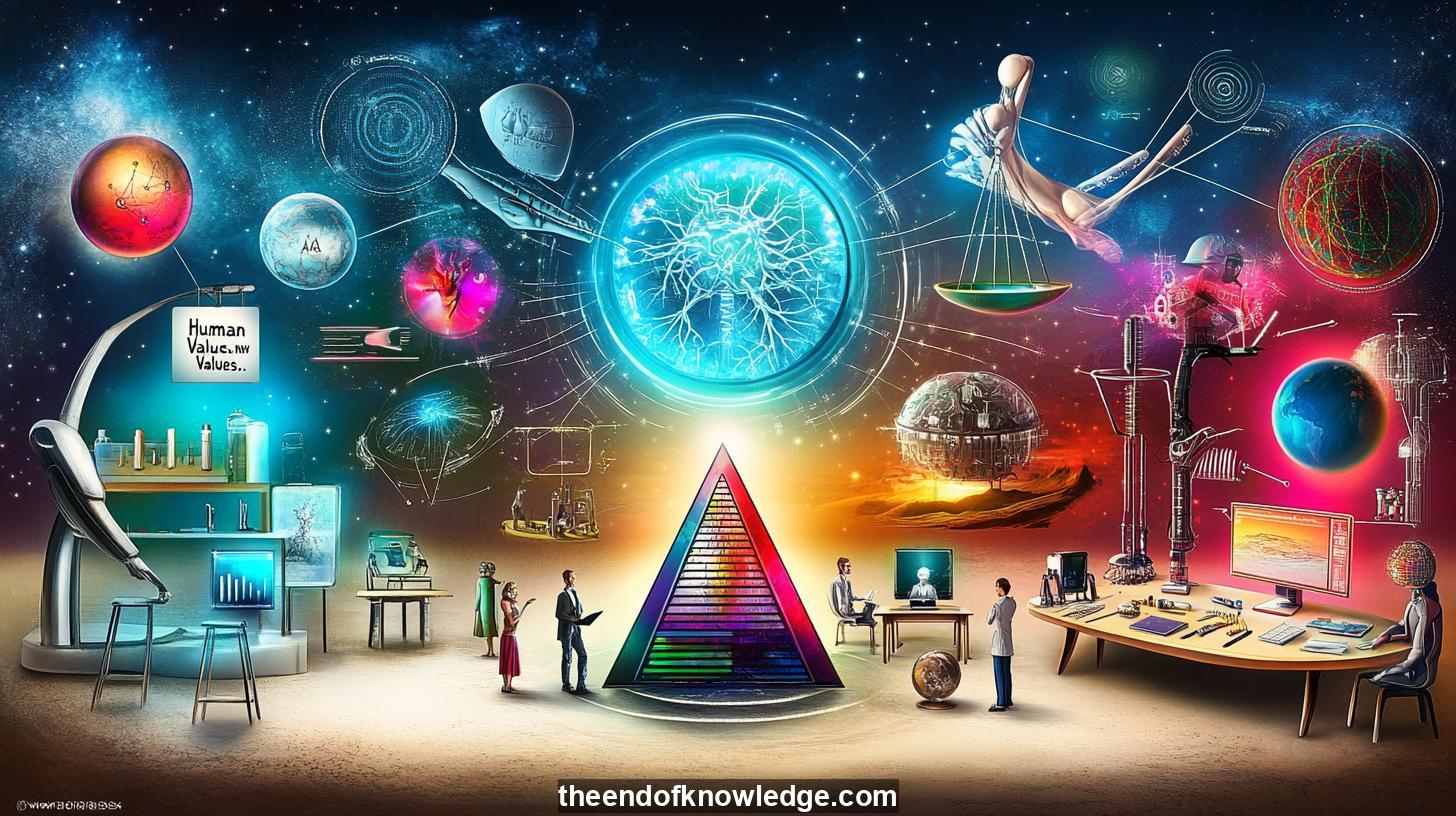 >
>
Concept Graph, Resume & KeyIdeas using DeepSeek R1 :
Resume:
The discussion revolves around the evolution, impact, and future of artificial intelligence (AI), with a focus on its transformative potential across various domains. Jorge Calvo, a professor and AI expert, shares insights into the development of AI, emphasizing its ability to mimic human-like intelligence and its applications in education, healthcare, and other fields. He highlights the importance of understanding AI as a tool that complements human capabilities rather than replacing them. The conversation also touches on ethical considerations, such as the need for regulation and transparency in AI systems, to ensure they align with human values and societal needs. Calvo underscores the significance of education in preparing future generations to work alongside AI, fostering a collaborative relationship between humans and machines. The discussion concludes with a call for optimism and proactive engagement with AI, recognizing its potential to address global challenges and enhance human progress.30 Key Ideas:
1.- AI is rapidly evolving, with models like GPT-4 demonstrating advanced capabilities in understanding and generating human-like text.
2.- The concept of intelligence artificial (IA) involves algorithms that mimic human tasks, such as reasoning, learning, and problem-solving.
3.- Jorge Calvo highlights the importance of understanding AI as a complement to human intelligence rather than a replacement.
4.- AI systems are being used in education to create personalized learning experiences, making complex concepts more accessible.
5.- The development of AI raises ethical questions, including issues of transparency, accountability, and bias in decision-making processes.
6.- Calvo emphasizes the need for regulation and ethical frameworks to guide the development and deployment of AI technologies.
7.- AI has the potential to revolutionize healthcare by improving diagnostics, personalized treatment, and drug discovery.
8.- The integration of AI into everyday life requires a balanced approach to ensure benefits are equitably distributed.
9.- AI systems are increasingly being used in creative fields, raising questions about authorship and the role of human creativity.
10.- The future of AI may involve the development of artificial general intelligence (AGI), which could surpass human capabilities in many domains.
11.- Calvo discusses the importance of interdisciplinary collaboration in AI research, combining insights from neuroscience, computer science, and philosophy.
12.- AI has the potential to address global challenges, such as climate change, by optimizing resource use and predicting environmental trends.
13.- The ethical implications of AI include concerns about privacy, surveillance, and the potential for misuse in malicious activities.
14.- Calvo argues that education must adapt to prepare students for a world where AI is ubiquitous, fostering critical thinking and creativity.
15.- AI systems are becoming more accessible to non-experts, enabling widespread innovation and problem-solving across industries.
16.- The development of AI highlights the need for ongoing dialogue between technologists, policymakers, and the general public.
17.- Calvo reflects on the historical development of AI, noting key milestones and the growing sophistication of modern models.
18.- AI has the potential to enhance productivity in various sectors, from manufacturing to finance, by automating repetitive tasks.
19.- The conversation touches on the concept of "agency" in AI, referring to the ability of systems to act autonomously and make decisions.
20.- Calvo emphasizes the importance of maintaining human agency and control over AI systems to ensure alignment with human values.
21.- AI systems are being integrated into robotics, enabling advanced applications in areas such as logistics, agriculture, and healthcare.
22.- The discussion highlights the potential for AI to improve accessibility for individuals with disabilities, such as language processing for those with autism.
23.- Calvo discusses the role of AI in education, including its use in creating adaptive learning tools and supporting students with diverse needs.
24.- The ethical use of AI requires careful consideration of its impact on employment, particularly in sectors where automation may displace jobs.
25.- Calvo encourages a proactive approach to AI development, emphasizing the need for innovation and responsibility.
26.- AI has the potential to transform the arts, enabling new forms of creative expression and collaboration between humans and machines.
27.- The discussion explores the concept of "singularity," where AI surpasses human intelligence, and the implications for society.
28.- Calvo stresses the importance of fostering a culture of lifelong learning to adapt to the rapid pace of technological change.
29.- AI systems are increasingly being used in scientific research, accelerating discoveries and improving the accuracy of predictions.
30.- The conversation concludes with a call for optimism and collaboration, recognizing AI as a tool to enhance human potential and address global challenges.
Interviews by Plácido Doménech Espí & Guests - Knowledge Vault built byDavid Vivancos 2025